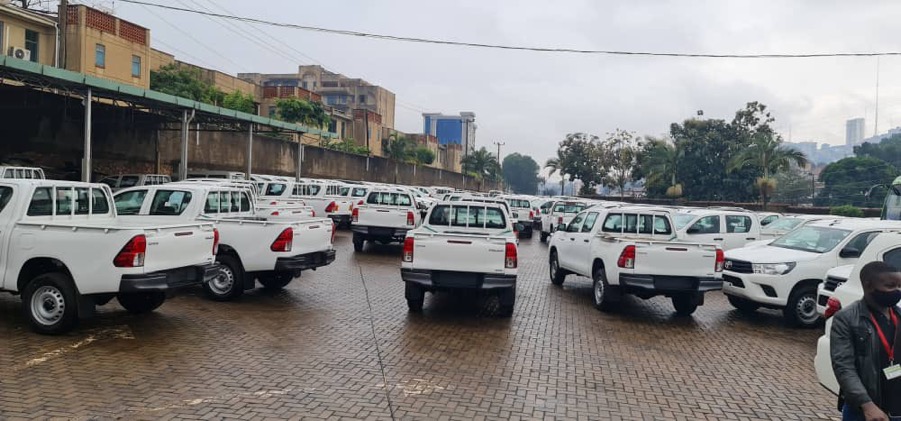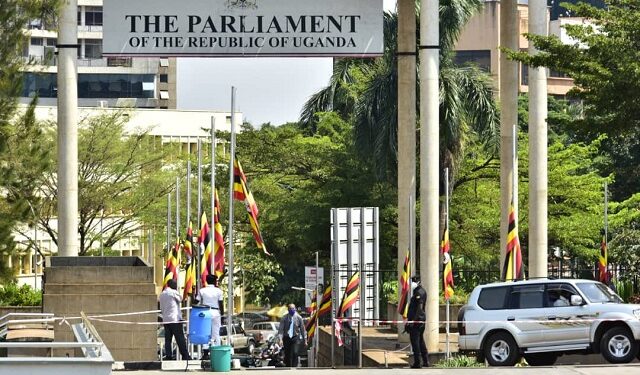It’s the cars, stupid! Perhaps this is the most befitting metaphor that captures the spendthrift conduct of the Uganda government that recently spent nearly $ 30m to purchase vehicles for members of Parliament. Each of Uganda’s 529 MPs was gifted with a $56,500 grant to purchase a vehicle, including those who double as MPs and ministers and are entitled to a fully-serviced car from the ministry. The MPs have the option of not buying the car at all and will not be held accountable as there is no written requirement for them to prove that the money was used for the intended purpose.
Yet the metaphor in the Ugandan context carries a convoluted meaning, which selectively applies to pliant lawmakers whose mission in Parliament is to chase after the gravy train.
The vehicle purchase, some commentators argue,is symptomatic of Uganda’s political elite who want to mimic lifestyles of aristocratic scions at the expense of their poor citizens.
This wasteful vote approved in July 2021 coincided with the peak of the second Covid-19 precipitated by the deadly Delta-strain, which nearly collapsed the country’s ailing health-system.
As the funds left the Treasury to buy vehicles for MPs, the recently appointed Prime Minister, Robinah Nabbanja, in stark contrast asked poor Ugandans to generously contribute towards the purchase of vaccines.

Uganda has administered at least 1,143,763 doses of Covid vaccines so far. Assuming each person needs two doses, that is enough to have vaccinated about a handful of 1.3 percent of the country’s population.
Most of these vaccines have been donated through Covax, a program set up last year to equitably distribute vaccines.
So, is it the case that a constrained purse has hamstrung Uganda’s Covid-19 fight or is the government unbothered about the plight of its citizens?
Uganda’s Gross National Income (GNI) stands at a paltry $800, below Yemen’s at $940, a desert country in the Middle-East convulsed by an insurgency.
But even as the country inches towards a fiscal cliff as a result of an economy battered by the pandemic, most of its expenditure is geared towards sustaining a bloated government.
Uganda has one of the largest cabinet and Parliament in the World, at 80 and 529 MPs respectively.
It also has over 100 presidential advisors and Resident District Commissioners who preside over decentralised units.
Through a patronage system, most of these leaders are lavished with perks including vehicles.
Senior civil servants are also entitled to vehicles in a country where the popular V8 Land-Cruiser is a status symbol for those who want to espouse social trappings.
Religious clerics who usually lavish praise on the president often receive these vehicles as gifts.
The Auditor General estimates that government spends at least Shs 125bn ($ 35.2million) on maintaining and repairing vehicle fleet.
A recent spectacle played out recently when newly-sworn ministers rejected vehicles that chauffeured their colleagues and wanted brand-new vehicles.
These ministers had also received a cash-hand out to purchase a vehicle as members of Parliament.
The obsession with vehicles reached a crescendo when the Health ministry recently used Shs 23bn ($6.8m) out of a total of shs 29bn ( $8.1m) donated by the public towards the fight against the Covid pandemic to purchase double-cabin pickups.

It came at the time a number of health workers who earn less than $ 300 a month, had gone without allowances for several months.
The decision has elicited flak from the public and Samantha Mwesigye a lawyer wrote on her Twitter account: “These guys are really tone deaf! — front line workers are working in deplorable conditions, dying…”
Before Covid struck, the poor taxpayers were left to pick a bill worth $4.2 million dollars annually to treat government VIPs abroad in first-world hospitals and allow them recuperate in exotic locales.
But Uganda’s government hospitals have been rotting away in a country where 16 women die every-day while giving birth.
Political hacks have defended the expenditure,claiming lawmakers just like other government officials are entitled to vehicles.
But for a Parliament, which is an appendage of the Executive and thrives on comedy and bluster than substance, the latest vote on vehicles at the time the country is facing a health crisis of monumental proportions is a swindle.
The previous 10th Parliament passed loans worth a whopping Shs 39.9 trillion ($11.241bn).
The borrowing spree has continued. Government recently acquired a loan worth $ 1bn from the International Monetary Fund (IMF) to ostensibly shore up a fragile economy and dole out cash relief to the most vulnerable communities on the verge of starvation.
Of these funds, government only spent Shs 54bn ($ 15m) to give at least 500,000 Ugandan families Shs 100,000 each ($ 28.17).
According to the Uganda National Household Survey for 2017, a household spends an average income of shs 323,000 ($91) a month on basic needs.
The $28 dollars doled out to each household could barely sustain families during the 42-day lockdown, which ended at the end of July 2021.
But in its wisdom, government preferred to spend twice the amount given to its poor citizens to purchase vehicles for MPs.
When the National Resistance Movement (NRM) government came to power in 1986, General Yoweri Kaguta Museveni, now president for close to 40 years, was a Marxist-leaning exponent who preached frugality.
He chided previous leaders for leaving in opulence and promised he would buy furniture locally.
Today, the taxpayer picks a bill to buy exported furniture for its ministers and other highly-placed civil servants.
Who will speak for the destitute, the hungry and millions laid off from their employment as the pandemic roils the economy?








